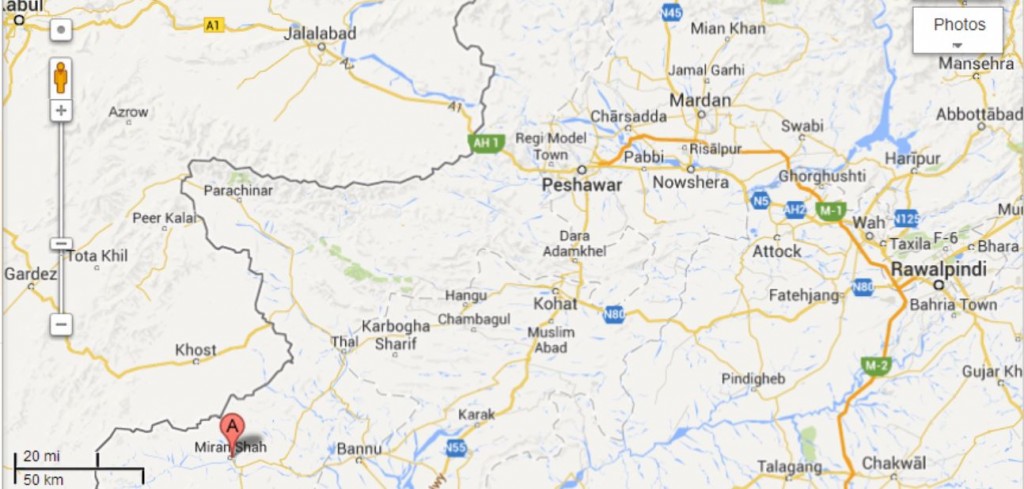The Hellfires of Christmas
Last week, I noted that the US had a perfect excuse for ending its drone strikes that are a long-running violation of Pakistan’s sovereignty because Pakistan had engaged in military action in North Waziristan to kill a number of TTP militants after a TTP suicide attack had killed Pakistani soldiers. The same pivotal town in North Waziristan where last week’s events were centered, Miranshah, made the headlines again on Christmas Day, as Barack Obama and John Brennan could not resist demonstrating to the world that the US is not a peaceful nation. A drone fired two missiles into a home near Miranshah, killing four “militants”. Those killed are widely believed to have been members of the Haqqani network (Pakistan and the Haqqani network do not attack one another the way Pakistan and the TTP do), but there are no reports of senior leaders being involved, so this may well have been a signature strike rather than a strike aimed at a particular high level militant. On Christmas. Pakistan’s government protested the strike as a violation of sovereignty, yet again.
Yes, those targeted by the US in the Pakistan-Afghanistan region are all Muslims who don’t celebrate Christmas, but there has often been a tradition in wars of ceasefires on religious holidays. There was a magical ceasefire on Christmas in World War I. Although the concept was rejected this year, there have been Ramadan ceasefires, both in Afghanistan and even in the skirmishes between Pakistan and the TTP.
Somehow, in thinking on the evil embodied by this act of death and destruction on the day on which Christians celebrate the birth of the Prince of Peace, I came across this terrific post that centers on a particularly apt passage from Shakespeare’s Julius Caesar. As pointed out in the post, the passage is spoken by Marc Anthony just after the assassination of Julius Caesar:
Blood and destruction shall be so in use
And dreadful objects so familiar
That mothers shall but smile when they behold
Their infants quarter’d with the hands of war;
All pity choked with custom of fell deeds:
And Caesar’s spirit, ranging for revenge,
With Ate by his side come hot from hell,
Shall in these confines with a monarch’s voice
Cry ‘Havoc,’ and let slip the dogs of war;
That this foul deed shall smell above the earth
With carrion men, groaning for burial.
The post I linked addresses the famous phrase “Cry ‘Havoc,’ and let slip the dogs of war” and should be read in its entirety. But the larger passage reads almost as if Shakespeare has foreseen the situation of a long-running period of drone attacks, especially when the drones carry Hellfire missiles. In Pakistan, “dreadful objects so familiar” have resulted in widespread PTSD among the residents who must live under the constant buzz of drones flying overhead.
Marc Anthony speaks of the attacks being out of revenge, and revenge has been a motivator for this and other strikes in Pakistan.
Shakespeare very nearly hit on the Hellfire name. Obama and Brennan would do well, though, to study up on the particular mythological figure that Shakespeare invokes with his mention of who comes “hot from hell”. A quick search gives us this on Ate:
ATE was the spirit (daimona) of delusion, infatuation, blind folly, rash action and reckless impulse who led men down the path to ruin.
How can the rash action and blind folly of repeated drone strikes lead to anything other than ruin for Obama and Brennan? Let us hope that they don’t drag the rest of us down with them.
Update: See Peterr’s comment below for the backstory of this beautiful song commemorating the Christmas ceasefire in World War I:
[youtuber youtube=’http://www.youtube.com/watch?v=QTXhZ4uR6rs’]

